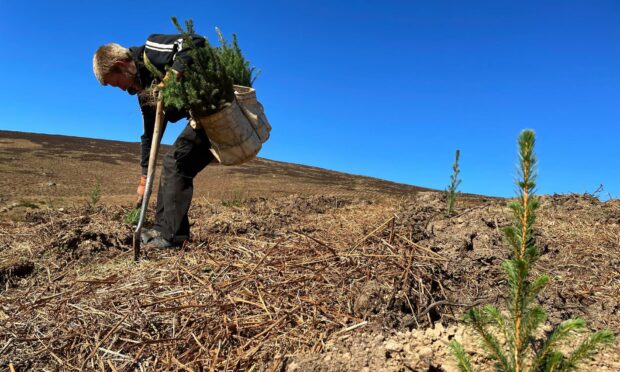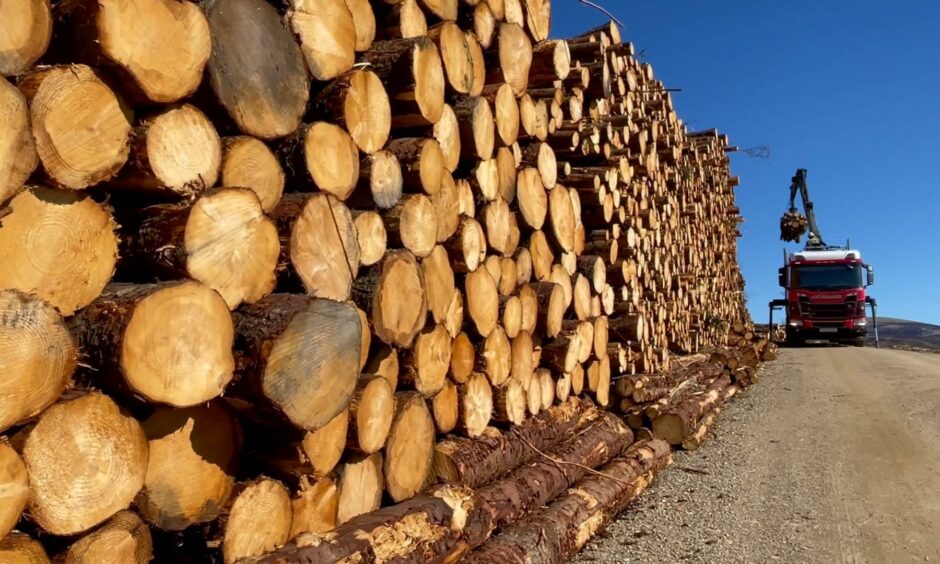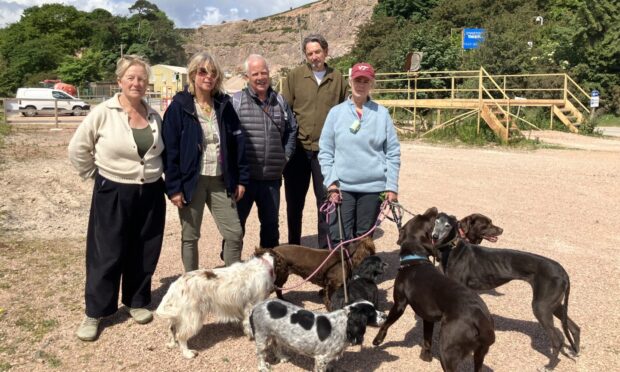A new woodland is being grown at Lintrathen Loch, near Kirriemuir.
Scottish Water is behind the project, which is hoped will be a biodiversity boost for the area.
Some 100 hectares of hillside close to Lintrathen Loch has been transformed. It was previously a monoculture of mature conifers and rough grassland.
But now a mixture of native pine and broadleaf trees will give the area a new lease of life.
When they mature and grow, the new woodland is expected to boost local wildlife, as well as capturing more carbon.
Mark Williams – manager of Sustainability and Climate Change at Scottish Water – said: “This kind of mixed woodland is a much more attractive place for birds, insects and mammals to live.
“It will massively improve biodiversity in this area.
“Not only that, but this new woodland will lock up a huge amount of carbon.
“We estimate that within about 10 years it will begin to capture around 1,000 tonnes of carbon per year.”
What will happen to the old trees?
The conifer logs cut down near Lintrathen Loch have been sent to James Jones Sawmill, in Lockerbie, for processing.
They will be used to produce furniture and construction materials.
The wood industry is also processing thousands of trees felled by recent weather events such as Storm Arwen.
Forestry management firm Bell Ingram helped carry out the work at Lintrathen on behalf of Scottish Water.
Stuart McArtney, forest manager with the Perth-based company, said the replanting will make a “real difference” to wildlife in the area.
“Dense, monoculture planting provides only a very limited habitat. But this new mixed woodland means we’ll see more birds nesting, insects will come in to pollinate the tree flowers and it could also boost the number of native species like red squirrels and black grouse.
“These young trees will soon become a fantastic green space for the local community, for wildlife and will make a really important contribution to reducing the effects of climate change.”
Scottish Water has pledged to reach net zero carbon emissions for its operations by 2040.











